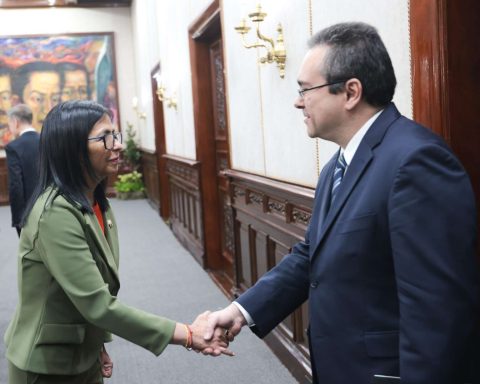Guaranteeing labor rights for those who do commissioned work from their homes for an employer, in exchange for remuneration, is the new challenge raised by the National Assembly with the discussion of the Special Law for Homeworkers.
On August 9, the parliament debated said norm, which was approved in the first discussion. This law will integrate the 10 legal texts requested by the President of the Republic, Nicolás Maduro Moros, to protect workers in its various modalities under the Organic Law of Labor, Workers and Workers, created by Commander Hugo Chávez 10 years ago.
Deputy Gisela Tovar, a member of the AN’s Permanent Comprehensive Social Development Commission, explained that the law is designed for those who work “from home, from their room. He is a person who performs work in exchange for remuneration that is mostly low.”
He indicated that this rule does not refer to those who “go to a house to provide a service as a plumber or domestic worker.”
He stressed that those who mostly carry out this type of work are women, “so inequality in terms of labor demands compared to other sectors, is part of the feminization of poverty.”
will cover the family
The law will cover family members who help carry out the work, who, according to Tovar, “are mostly children and adolescents who cooperate and support their mothers so that they deliver orders on time,” such as a delivery service or delivery at home
He asserted that in some cases this type of work is not valued as a job, so it seeks to guarantee the protection of the women’s sector and make their rights visible “along with the demands of the rest of the workers as a commitment of Hugo Chávez” .
sanctions
The proposal provides for the application of sanctions mainly against the contractor who does not comply. To this end, they urge the Ministry of Labor to consign specialized inspectors in this new matter, homeworkers “to prevent them from incurring in irregularities or violation of the law.”
Another agreement is to make a diagnosis or census to know the number of people who work at home, since it will contribute to the guarantee not only of a decent salary, but also social security, utilities, benefits, vacations.
Other regulations that the AN anticipates discussing are the Law for Motorized Workers, agricultural workers, transport workers, housewives, maritime, river and lake navigation workers, air transport workers, cultural workers and for workers with any disability.
growing industry
According to the studies and diagnoses carried out by the National Assembly at the time of presenting the proposal for the Special Law on Workers at Home, the population dedicated to this sector has been increasing over the years.
This was detailed by deputy Bussy Galeano, who assured that before the covid-19 pandemic this sector represented 7% of the population. “But with confinement the figure rose from 11 to 15%.”
He indicated that in any country this sector represents a quarter of the gross domestic product (GDP).
















